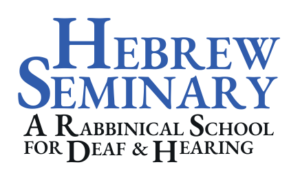Remember Who You Come From: Commentary on Parashat Ki Tavo 5782
By Ben Abrams, Rabbinical Student at Hebrew Seminary
The Israelites are reminded of their wandering, humble past when they are instructed to recite the formula אֲרַמִּי֙ אֹבֵ֣ד אָבִ֔י (Arami oved avi, “My father was a wandering Aramean”),[1] words that today are a critical part of the Haggadah we read on Passover. The verse from Deuteronomy continues:
וַיֵּ֣רֶד מִצְרַ֔יְמָה וַיָּ֥גׇר שָׁ֖ם
He went down to Egypt with meager numbers and sojourned there.[2]
The Israelites are instructed to acknowledge where they came from, and who their father became, in the place where he sojourned; “וַֽיְהִי־שָׁ֕ם לְג֥וֹי גָּד֖וֹל עָצ֥וּם וָרָֽב׃” (“he became a great and very populous nation”)[3].
The Torah compels us to remember from where and from whom we come. Many of us remember, or know the stories of, parents or grandparents who were Jewish peasants from Eastern Europe, North Africa, or other places where Jews were scattered. They lacked safety and stability, so they ‘wandered’ when it was necessary for them to do so. Some of our fathers’ fathers resembled the wandering Aramean more, and others less; regardless, we all share a connection to this saga. We are compelled to remember their stories when we observe their yahrtzeits, the anniversaries of their deaths.
The additional ritual and spiritual preparation of Elul remind us that a holiday with a Yizkor service is coming. Reflecting on remembering during this season, Rabbi Isaac Klein wrote:
[T]he custom of remembering the dead… was [at first] done individually by people when they were called up to the Torah and pledged a gift of charity (O.H. 284:7 in Rama)… A collective memorial prayer with the entire congregation joining in originally took place only on Yom Kippur.[4]
When we hear the name of the person we are remembering, we might remember the accent they spoke English with, that they also spoke Yiddish or a language that connected them to a different place, or gave us advice which was inconsistent with our modern American reality.
The great Torah commentators Sforno and Chizkuni taught that our patriarch Jacob was also a wanderer. The phrase “My father,” Sforno explains, refers to “Yaakov, who was for a while a wandering lost person without a home of his own, was not at the time able to establish a nation deserving or fit to inherit this land.”[5] Chizkuni illuminates this idea by stating, “While [my father] was serving Lavan in Aram, he was no better than a wandering Aramean. He had no house or land of his own; he was not even a resident in that country.”[6]
Our ancestors performed a ritual that involves offering first fruits to the כּׂהֲנִים (kohanim, “priests”) in the ancient Temple in Jerusalem, where the words Arami Oved Avi were recited. Rituals, and the words we recite when we perform them, serve as a powerful reminder that we are a distinct people, with a particular heritage. The Israelites were reminded that their father was a wandering Aramean, when they gave their first fruits to the kohanim, just as we are reminded of our connection to the patriarchs (and matriarchs) when we recite the Amidah. We might ask ourselves what it means to be Jewish, and how we should practice Judaism, in the coming year or years. Torah will remind us of who we are, and where we come from.
[1] Deuteronomy 26:5.
[2] Ibid.
[3] Ibid.
[4] Isaac Klein, A Guide to Jewish Religious Practice (The Jewish Theological Seminary of America, 1979), pp. 139-140.
[5] English translation of Sforno’s Hebrew commentary on ibid, as accessed at https://www.sefaria.org/sheets/9347.1?lang=bi&with=Sforno&lang2=en on September 5, 2022.
[6] English translation adapted from Chizkuni’s Hebrew commentary on Deuteronomy 26:5, as accessed at https://www.sefaria.org/sheets/9347.1?lang=bi&with=Sforno&lang2=en on September 5, 2022.

Leave A Comment
You must be logged in to post a comment.